On the wide scale, society is working to find a cure to a previously unknown virus that’s causing a pandemic. And inside companies and communities, it has brought a big effort to adapt to the unexpected changes in the market and life, while continuing to deliver services and bringing people together.
It sounds like a time when we need engineers. So at Technical.ly, it’s fitting that we’re wrapping up our RealLIST series spotlighting the technologists who are solving problems every day.
Baltimore’s RealLIST Engineers returns for its second edition today. (See 2019’s honorees here.)
We’re recognizing these software and IT pros for their problem-solving prowess to solve technical challenges, and their work to spread skills and motivation throughout the community. This year’s honorees range from self-taught programmers to Ph.D.s, each making an impact on both systems and people. Increasingly, we find that this range is reflective of the tech community as a whole.
So, you might ask, how did we decide who’s real? It started with a public call for nominations. Then, we consulted technologists and looked back through our own coverage. We considered how the person in mind was influential within their organization or community, how they overcame a specific technical challenge and how this person contributed to educating others on technical issues. Shoutout to Ben Garvey, Eliot Pearson and Brian O’Neill for helping us with technical review.
So let’s take a look at the second edition of RealLIST Engineers Baltimore, in alphabetical order:

Craig Addison, instructor, Byte Back

Craig Addison (in orange) instructs a Byte Back class. (Courtesy photo)
Coming up in East Baltimore, Addison learned tech skills the way many do: taking apart a computer and figuring out how it worked. Soon he was solving problems in the community, and at jobs where there was a need to fix tech issues. Along the way he taught himself, and the tech skills he gained provided opportunity. Now he’s an instructor with tech inclusion-focused nonprofit Byte Back, which expanded to Baltimore last year and has continued to grow a presence. After using his skills to help others for many years, now he is teaching them, as well.
Dr. Yair Amir, director of the Distributed Systems and Networks Lab, Johns Hopkins University

Dr. Yair Amir. (Courtesy photo)
Dr. Amir is a computer science professor and director of a lab that specializes in performance and security of networked infrastructure. Among a number of inventions, he developed technology that used in the power grid, servers and routers. He is also chief scientific officer of Columbia-based LTN Global Communications, which has played an outsized role in the pandemic by facilitating remote performances on “American Idol” and the Democratic National Convention. Plus, JHU turned to the company to stage its commencement remotely in the spring.
The students and alums of his lab know he’s fond of the saying “Me and you will change the world,” and is a ready promoter of the work of his students.
Jason Anton, full-stack engineer, Bellese Technologies and tech lead, Code for Baltimore
Bringing experience from Owings Mills-based civic tech company Bellese, Anton joined the brigade that works on local tools. During the pandemic, he was the primary developer on Code for Baltimore’s application that allowed the Baltimore City Health Department to contact “500-plus facilities in an instant” to assess needs during the pandemic, saving hundreds of hours of work.
Stephen Becker, engineering lead, Catalyte/Surge
Leading software engineering across multiple teams at the Baltimore software development workforce company, he was ID’d by his nominator as the “definition of a force multiplier,” as he spends time in code reviews and pair programming. For Becker, it’s about the team, and he’s focused around making them successful. At the same time, he is continuing his education at night, showing dedication that others admire.
Adam Bouhmad, founder, Project Waves
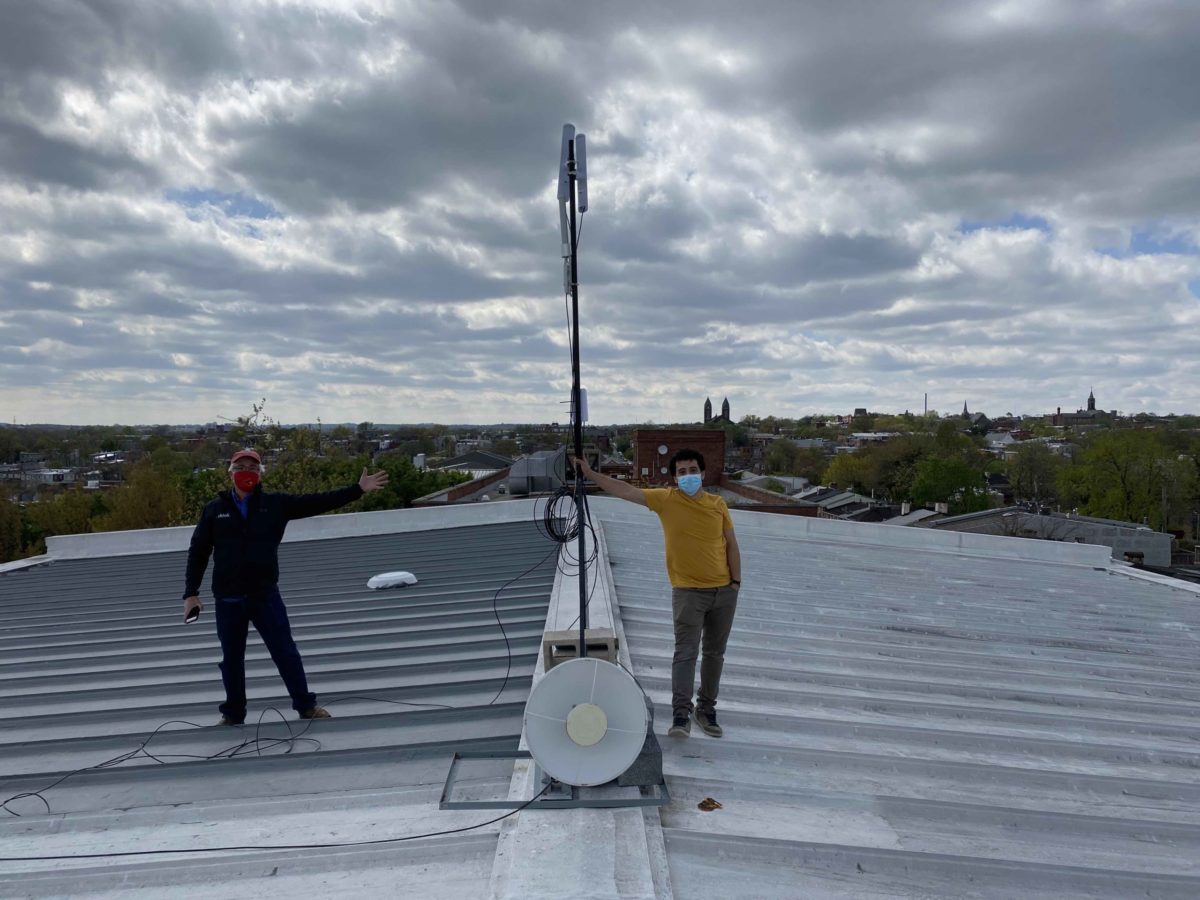
Ed Mullin and Adam Bouhmad light up Project Waves for Southwest Baltimore. (Photo by Stephen Babcock)
A security engineer and familiar face at Digital Harbor Foundation, Bouhmad put a belief that internet connectivity is a human right to work by starting up an organization that sets up community internet for underserved communities in Baltimore. During the pandemic, Bouhmad jumped in set up community WiFi in areas like Southwest Baltimore, and set up mesh networks in neighborhoods where the city’s digital divide is most acute, such as Sandtown-Winchester and Cherry Hill. Since then the work has only expanded with institutional partnerships with the likes of the University of Maryland, Baltimore. It’s often been said this year that the pandemic exacerbated the divides in our society that were already there. It also elevated the work of the folks digging into these issues before we knew about coronavirus.
Aaron Brooks, DevOps Engineer and CEO, Mastermnd
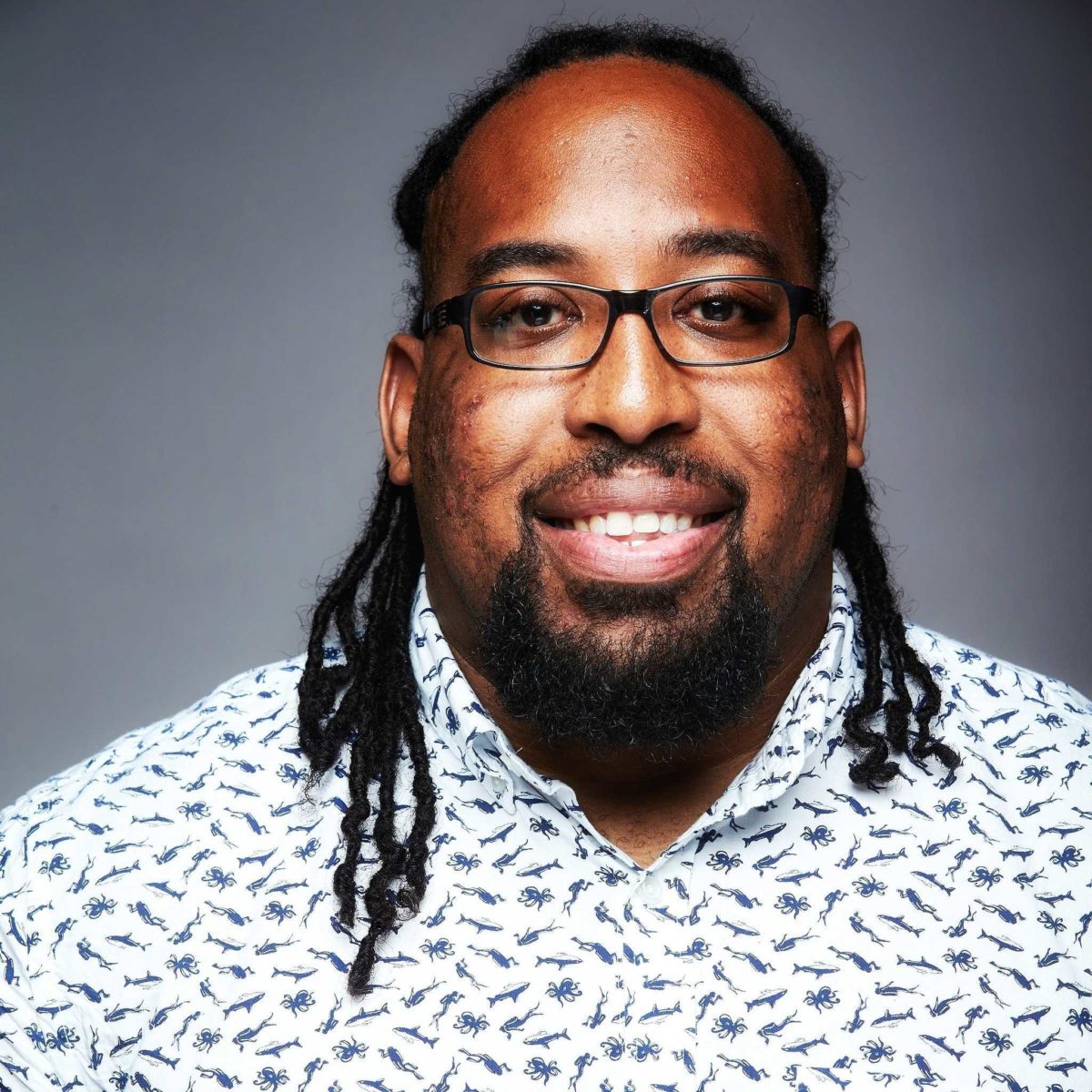
Aaron Brooks. (Courtesy photo)
The former DevOps engineer at Fearless went full-time this year as CEO with Mastermnd, the technical talent pipeline company he founded. A company dedicated to fixing the gaps in the technical talent pipeline with close to 7,000 followers on Twitch.
“The goal is to make the process of becoming an engineer a very public one,” he told us earlier this year.
He specializes in “edutainment” as a pathway to bringing people into software development, and we saw this on display as he gave an intro to Python at Baltimore Data Week, and charmed Technical.ly’s Super Meetup with the memorable talk that included the line, “Pokemon was the original DevOps workflow.”
Shannon Burt, technical instructor, NPower Maryland

Shannon Burt. (Courtesy photo)
A graduate at the IT training program that has a local base in Southwest Baltimore, Burt is now an instructor helping others to launch tech careers. The desire to help others gain skills extended beyond course hours, as she continues to mentor former trainees. It also extends helping others in the office and seniors in the community, always bringing patience and empathy.
In the pandemic, she has also been instrumental in finding software that provides a real-world experience for trainees in the virtual environment that was implemented by NPower nationwide. And she was one of a few instructors on a committee that devised new strategies for internship opportunities for trainees at NPower.
A voice for breaking down barriers faced by women and people of color in tech, Burt has spoken to a group in Baltimore and helped to create a guide from the Chanel Foundation and INCO on authentically building diverse and inclusive workplaces.
Dan Edlow, director of engineering, VitusVet
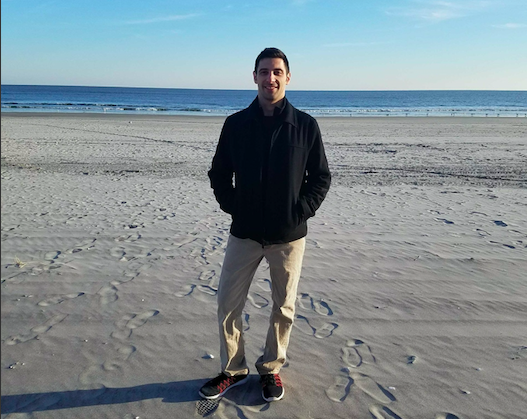
Dan Edlow. (Courtesy photo)
Edlow leads the engineering team at one of the city’s intriguing tech stories of the past few years. The company, which makes software for veterinary practices to communicate with owners and manage health, grew its team after moving to Baltimore last year and bringing on well-known startup builders in the community. Edlow told us earlier this year that his focus is on the team’s approach to technology and vision for the future. Leaders, take note: His main focus, he said, is on empowering the engineering team.
Dr. Lauren Gardner, associate professor, Johns Hopkins University Department of Civil and Systems Engineering

Lauren Gardner. (Courtesy photo)
When a member of Time’s 100 Most Influential People of 2020 list is nominated, we suppose we can make some room, as well. Dr. Gardner created the Johns Hopkins COVID-19 dashboard, which includes a map and data visualizations tracking the disease at the heart of the global pandemic. It launched in January of this year, before the coronavirus came to the U.S. It now gets one billion usage requests per day, according to the university.
Now, Dr. Gardner oversees the team of students and colleagues that keep the dashboard up and running. It started with two people, manually entering the data. Now, more than two dozen people are updating the map, and an analytics team from Johns Hopkins Applied Physics Laboratory helped to streamline data entry. Going forward, the team is adding the ability to forecast hotspots.
Dr. Leshell Hatley
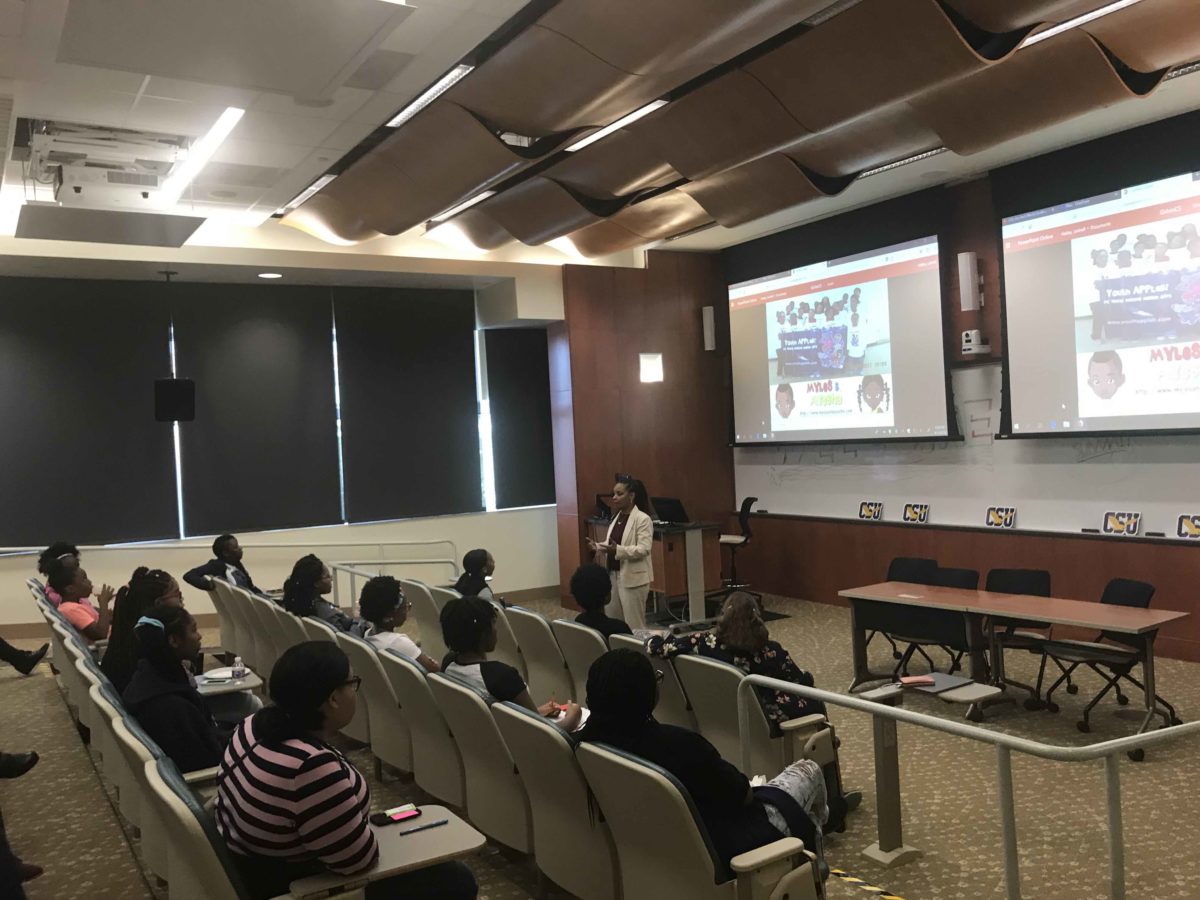
Dr. Leshell Hatley speaks at the Girls in CS Summit on Sept. 22, 2018. (Courtesy photo)
Dr. Hatley is an associate professor of computer science at Coppin State University, where she established the Lab for Artificial Intelligence and its Applications. Since seeing her speak at a Code in the Schools event a couple years ago, we’ve looked to keep up with her work and there seems to be an interesting development at every refresh of the lab’s website. The lab has been engaged in a variety of efforts at the intersection of tech and society, from the BmoreCLEAN app to track and raise awareness of litter to a recent award of a pair of Google research grants, including one for “Developing a Dialogue System for a Culturally-Responsive Social Programmable Robot.”
In addition to teaching college students, Dr. Hatley is also active in bringing the next generation after that, hosting younger students and speaking at events like Code in the Schools’ Girls in CS Summit. She’s the founder of the nonprofit Uplift, Inc., which immerses students in computer science and STEAM.
Sandra Koranteng, quality assurance tester, Mindgrub
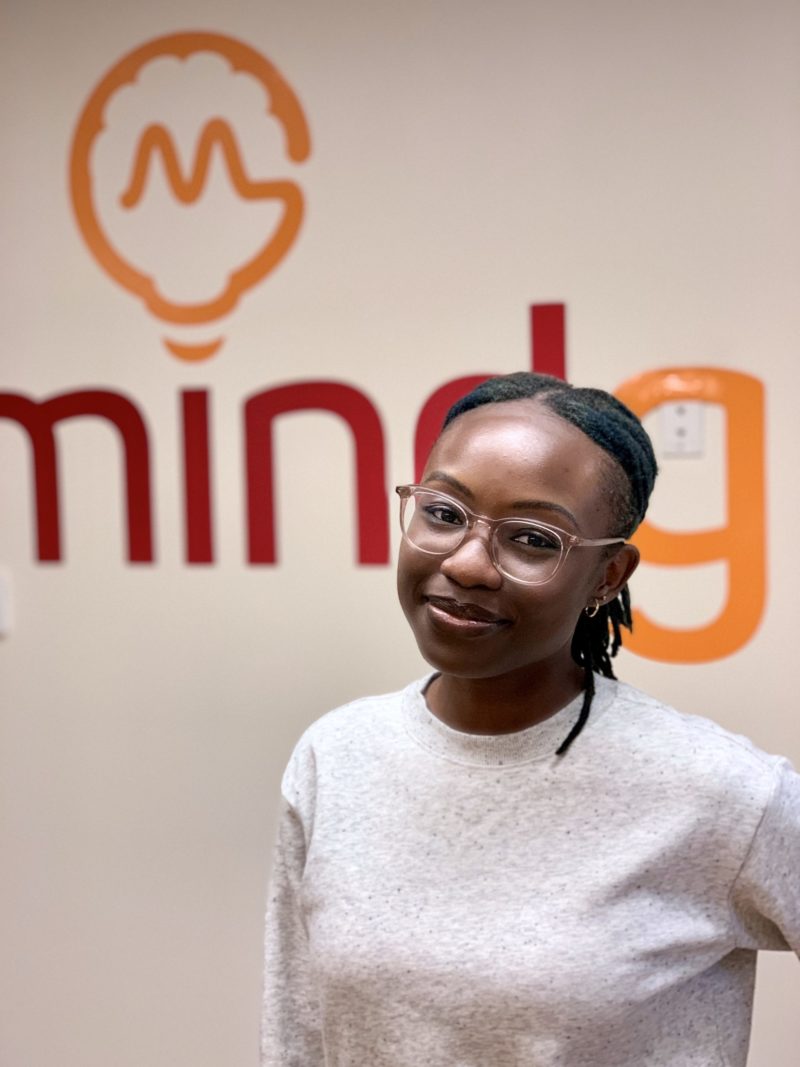
Sandra Koranteng. (Courtesy photo)
Spend enough time around any tech team, and you’ll find folks who emerge as advocates that help raise awareness for everyone. At Locust Point-based tech agency Mindgrub, Koranteng has become the in-house expert on accessibility, ensuring that web products are designed so that people with disabilities can benefit. That means she is an expert on the standards and best practices that come along with this work. But talk to Koranteng, and you’ll find that it’s all oriented toward people.
“Technology is supposed to make our life better, so there shouldn’t be a challenge or obstacle with it,” she told us in July. It also brought a reminder that the responsibility to ensure accessibility can’t just fall to one person. She told us how it’s important to incorporate into design reviews, and implement across teams.
Eric Oestrich, engineering manager, SmartLogic

Eric Oestrich. (Courtesy photo)
Oestrich is a leader of the Canton-based software development consultancy’s team. To the outside world, he has become a national voice on the programming language Elixir through keynotes and the podcast “Elixir Wizards,” where he is co-creator. Within the team, he frequently pairs with junior developers to help hone their skills and solve technical challenges, per his nominator. He also created a board where team members can post questions, and record answers.
“Eric is a great developer, but he also makes everyone on our team become a better developer by being a great internal resource,” his nominator said.
Alex Olszewski, software engineer, Whitebox Technologies
The ecommerce automation and fulfillment company has grown rapidly in the last year, moving into a bigger space in Baltimore as well as others in Las Vegas and Memphis. This creates a network for fulfillment, where single orders can be filled at different warehouses. Olszewski wrote a series of algorithms that underlies this process.
He came to Whitebox when the development team was six people, and brought leadership to a company that trains engineers in the “deep end,” his nominator said. Now that’s extending to the next generation, as he teaches web development at Johns Hopkins University to engineers who are getting started in their careers.
Chris Pollard, VP of design and engineering, cloudtamer.io
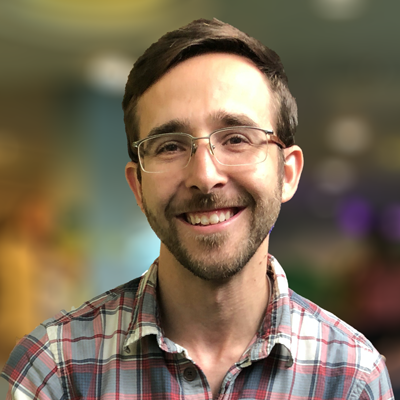
Chris Pollard (Courtesy photo)
A VP who still dives into the details, Pollard oversees 18 of the 40 employees at the Fulton-based company that makes cloud management and governance software. He led development of two new features at the company in consecutive quarters this year, working on many of the aspects of these engines. He’s also recognized as a leader who can motivate others, has an open communication style where folks can bring up issues and gives credit to others on his team rather than taking it himself. And he continues to contribute to code in the company, as well as the open source community.
Jonathan Prozzi, lead product designer, Digital Harbor Foundation
Show up at DHF’s Federal Hill Tech Center, and Prozzi will always greet you with a smile. Behind the scenes at the youth makerspace, he’s working seemingly constantly to make the organization’s work more accessible. As one nominator put it, “To say he is the foundation for how our digital content is accessed and our own internal systems would be an understatement,” a colleague at DHF who nominated him writes. And he’s always ready to answer a question.
Prozzi is motivated by a desire to “build awesome stuff that helps people.” One such project to create something new came about this year, as DHF teamed with the City of Baltimore to continue YouthWorks with a focus on teleworking and computer literacy. With many students lacking access to laptops and computers, Prozzi made a mobile-friendly app and resource library that students could access content that would help them learn a new skill on a phone.
Milt Reder, VP of engineering, Yet Analytics

Milt Reder. (Courtesy photo)
Reder has years of experience in the open source community that formed around xAPI, a specification for e-learning that allows data to be collected from a wide range of experiences across a host of connected systems. He built the first xAPI learning record store, or repository for that data, that passed all 1,300 tests in a U.S. Department of Defense test suite. xAPI forms the cornerstone of the technology built at downtown Baltimore’s Yet Analytics, and Reder is also a significant open source contributor.
Adds his nominator: “He has a ZZ Top beard and smokes a pipe. I mean, c’mon.”
Carrie Serio, senior manager and VP for workplace investors experience, T. Rowe Price
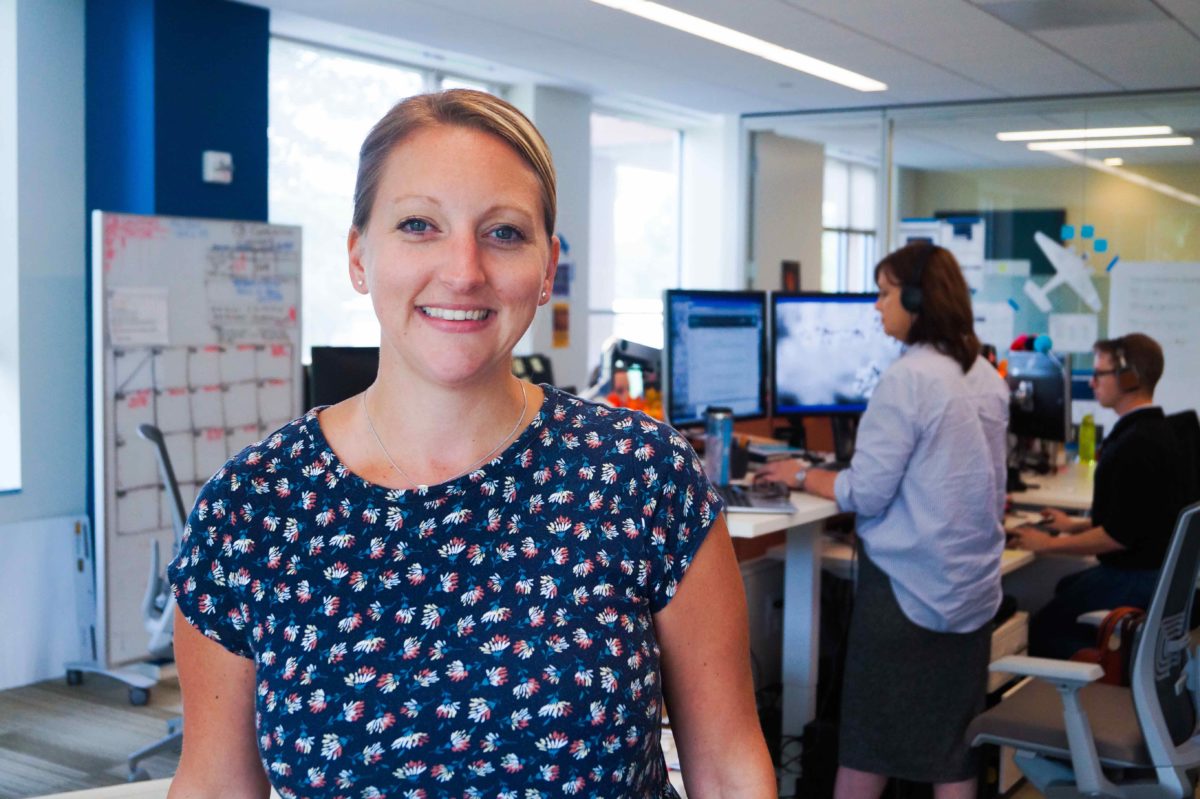
Carrie Serio. (Courtesy photo)
Serio’s chat with Technical.ly columnist Margaret Roth remains among our favorites from the 5 Questions series, taking us inside how one of the city’s largest employers is approach technology. She talked about what propelled the financial services company to grow its innovation presence in the Baltimore area, adding a lab in Owings Mills to go along with one in Linthicum that opened in 2018. It also showed how the practical approach to developing digital and tech-driven experiences that happens inside a large organization.
“What I have learned is that you have to really build for your end user,” she said, “and you have to be able to use data and insights that you get from that to prove to your buyer that they want it.”
Aaron Stahl, principal DevOps engineer, Protenus

Aaron Stahl. (Courtesy photo)
In Baltimore tech, it can feel like it all started with Advertising.com, so it’s fitting that this list includes one of the foundational technologists behind the work at the aughts-era adtech company, as well as its acquirers AOL and Verizon, to manage the infrastructure behind tens of billions of advertising experiences on the web. That takes a lot of servers.
Now he’s among a group of veterans of the iconic company working at Protenus, the Fells Point-based healthcare analytics company that is a cornerstone of the city’s tech community today. He joined in 2017, where he is now “the person we go to for all things DevOps at Protenus: CI/CD, AWS, and optimizing our customer’s instances, etc.,” his nominator writes, adding that he’s also a sought-after mentor and resource to both the team and customers who always seeks to learn.
A couple highlights along the way: a tear-down and rebuild of the company’s AWS environment, and a series of cost optimizations. In all, his “leadership focuses on making our operating margins as efficient and effective as possible,” his nominator writes.
Matthew Taylor, VP of innovation, Bytelion
With 15 years of experience in Baltimore tech, Taylor is known as a motivator and a mentor at Bytelion. The very human qualities of determination and empathy are infectious around the Cockeysville-based software development agency. From a previous role mentoring junior developers Catalyte and beyond, plenty have stories of his ability to forge a personal connection.
They also admire his tech acumen. A teammate recalled an early project to revamp the search pages of a website and migrate them to a JavaScript framework that helped not only to modernize the site, but also eventually led to keeping the client onboard.
Nicole Zonnenberg, software engineer, Fearless
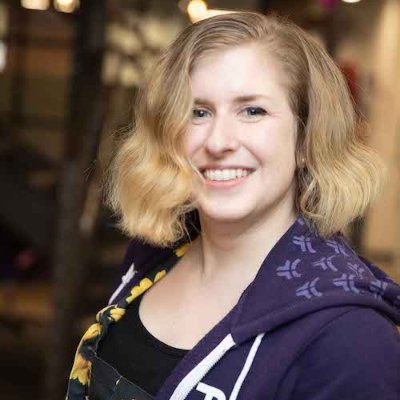
Nicole Zonnenberg. (Photo via Twitter)
Joining Fearless in early 2020, Zonnenberg has made an immediate impact at the downtown Baltimore digital services firm.
Focused on front-end work and putting the user at the center of her work, she’s part of team that is working with the Centers for Medicare and Medicaid Services build a new app that will help healthcare pros track patient data — all the while encouraging the team to slow down and ensure that it’s secure.
With a commitment to make tech accessible, she specializes in writing words as well as code, helping UX designers to document their work for clients. This helps them better understand the design itself, as well as the overall importance of the work. She’s also bringing Baltimore technologists together, hosting Code and Coffee meetups for folks interested in tech.
“When Nicole was in middle and high school, she taught herself how to code but never thought she was smart enough to be an engineer,” her nominator writes. “Nicole believes that there are ways for engineers to explain tech differently to help future talent prospects to recognize their skillset aligns with a career pathway in software engineering, and better understanding what it is they need to learn to be successful.”
—Technical.ly Baltimore’s Donte Kirby contributed reporting.
Before you go...
Please consider supporting Technical.ly to keep our independent journalism strong. Unlike most business-focused media outlets, we don’t have a paywall. Instead, we count on your personal and organizational support.
3 ways to support our work:- Contribute to the Journalism Fund. Charitable giving ensures our information remains free and accessible for residents to discover workforce programs and entrepreneurship pathways. This includes philanthropic grants and individual tax-deductible donations from readers like you.
- Use our Preferred Partners. Our directory of vetted providers offers high-quality recommendations for services our readers need, and each referral supports our journalism.
- Use our services. If you need entrepreneurs and tech leaders to buy your services, are seeking technologists to hire or want more professionals to know about your ecosystem, Technical.ly has the biggest and most engaged audience in the mid-Atlantic. We help companies tell their stories and answer big questions to meet and serve our community.
Join our growing Slack community
Join 5,000 tech professionals and entrepreneurs in our community Slack today!

The person charged in the UnitedHealthcare CEO shooting had a ton of tech connections

From rejection to innovation: How I built a tool to beat AI hiring algorithms at their own game

Where are the country’s most vibrant tech and startup communities?


